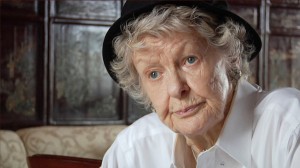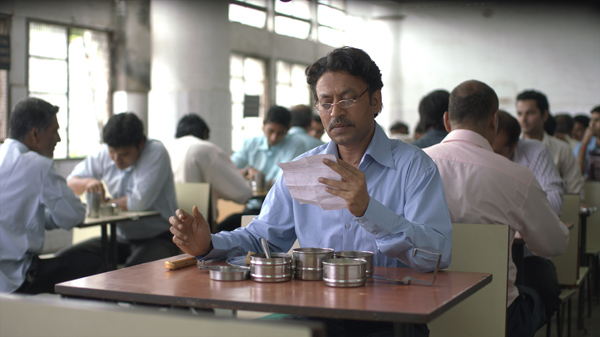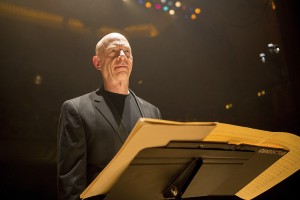What went into the creation of this list? Mostly strong first impressions, followed by second (or third or fourth opinions) and a second viewing, confirming that there is some “there” there. Because this compilation is made right at the end of the year, it’s a judgment of its time made under at least condition since it’s improbable that anyone has seen all of the 600-plus films released in New York City in 2014. All those below were reviewed by Film-Forward upon their release in theaters, on DVD, digitally, or debut at a festival. With give and take here and there, the list is also based on the feedback of more than a dozen contributors.
There are, of course, those that got away. This includes the ultimate actor’s ego trip, the strangely surreal and intricate Birdman. (None of its ensemble misses a beat, and all of its puzzle pieces are top-notch.) There’s also Sweden’s rowdy, infectious coming-of-age gem We Are the Best! which is about everything and nothing; the beautifully observational Stand Clear of the Closing Doors; and the upcoming biography/drama Selma. One could go on and on.
Without a doubt, one critically beloved film became a juggernaut, the one which everyone can agree upon: Richard Linklater’s Boyhood. Thus, it’s a practical way to kick off the list. His film has already plowed to the top of most best-of countdowns; it’s certainly a no-brainer. So in alphabetical order, here are our recommendations, followed by honors of distinction, dubious and otherwise. Kent Turner
The apex of long-form cinema, Boyhood is a wondrous, engrossing experiment from one of America’s finest directors. Filmed over the course of its starring actor’s true-life childhood, from first grade to freshman year of college, Richard Linklater’s ode to the growing pains of our wonder years is remarkable in scope and in the breadth of its perception. Mason, played by a transfixing Ellar Coltrane, witnesses divorce and abuse, experiences heartache and loss, but also acknowledges and appreciates the monotony of everyday life.
Linklater avoids heavy-handed delivery in favor of a delicate overlay. The eyes and mind of a seven-year-old observe and decipher milestones much differently than a boy at age 10, 14, or 17, and the director adjusts Mason’s awareness and responses appropriately. Patricia Arquette and Ethan Hawke deliver tremendous performances as Mason’s haggard but well-meaning parents, and Coltrane and Linklater’s farsighted direction make Boyhood a classic that resonates with all generations. John Brady Hamilton
Merriam-Webster defines force majeure as a “superior or irresistible force.” It also interprets the term as “an event or effect that cannot be reasonably anticipated or controlled.” In director Ruben Ostlund’s Force Majeure, both definitions are of equal relevance. Sweden’s entry for this year’s Academy Awards finds a prosperous, amenable family of four, including father Tomas (Johannes Bah Kuhnke) and mother Ebba (Lisa Loven Kongsli), on a ski holiday with their two children. All is fairly well until it’s not, as the foursome witness a man-made (though seemingly out of control) avalanche. The differences in Tomas’s and Ebba’s instinctive responses—one rushes to protect the kids while the other runs away from the table—sets into motion a series of unsettled, subliminal, and pivotal interactions between husband and wife. Though the title may initially refer to the former definition—the film’s snow sliding impetus—the satisfaction lies in the latter. The imbalanced reactions of its characters cannot be anticipated or restrained. JBH
Even in her prime, actress Elaine Stritch didn’t make it look easy. Her struggle to adequately record her signature number on Company’s cast album, “The Ladies Who Lunch,” is the stuff of legend. Here in the documentary Elaine Stritch: Shoot Me, she prepares, at a tenacious 88, for her cabaret show at the Café Carlyle, and it’s even less of a walk in the park. Stritch’s wit and starry past are enough to fill 80 minutes, but the extent to which she lets the camera capture her vulnerability—and mortality—sets this work apart. In the end, her true signature number was life, and she worked just as hard to nail it. Daniel Glenn
Beautifully haunting, both emotionally and visually, Ida follows an orphaned novice nun (Agata Trzebuchowska) about to take her vows in the early 1960s in the People’s Republic of Poland. When the mother superior requires her to first visit an aunt (Agata Kulesza), her only living relative, she learns the truth about her family history, including her Jewish heritage. Director Pawel Pawlikowski takes advantage of the stark landscape, often keeping his characters trapped at the bottom of the screen, with the architecture and fields hovering over them. He also filmed in black and white, giving the film a timeless feel despite its historical setting. The real star, though, is Trzebuchowska, who, in her first film, makes a striking impression as a quiet, wide-eyed girl grappling with history and faith. Megan Fariello
The documentary Keep on Keepin’ On affirms producer/musician Quincy Jones’s idea that the most important ingredient for success is to have someone who believes in you. And he should know. A child prodigy, the 12-year-old Jones was taught by trumpeter Clark Terry. The latter has been acclaimed for producing “the happiest music in jazz.” Now in his 90s, with failing sight and debilitating diabetes, Terry is homebound in Pine Bluff, AR. Despite his physical discomfort, he becomes a live wire in the middle of the night, when he draws upon decades of experience to teach pianist Justin Kauflin, a 23-year-old blind up-and-comer. In one fell swoop, this uplifting, loving tribute undermines all other portraits of the self-destructive, self-centered jazz musician; apologies to Whiplash. It’s a masterful master class, emphasizing the drive to excel, directed by first-timer, and drummer, Alan Hicks—a protégé of Terry’s, too. KT
The premise of Ritesh Batra’s debut feature, The Lunchbox, sounds like India’s take on a Meg Ryan–esque meet cute romantic comedy, yet this poignant, heart-wrenching story runs far deeper. When Ila (Nimrat Kaur), a young Mumbai housewife whose marriage is slowly withering, puts a note in a lunchbox intended for her husband (sent to his workplace using the famous Dabbawallah delivery network), it accidentally comes to Saajan (Irrfan Khan), an aloof, friendless widower on the verge of retirement. An unlikely relationship springs up as they exchange daily notes via the lunchbox prepared by Ila. Kaur and Khan create nuanced portrayals of two lonely people who overcome their isolation to forge a connection. Refreshingly free of artifice, this is an achingly tender film that will provoke cheers—and even tears—in even the most jaded cynic. Mahnaz Dar
The outstanding documentary The Overnighters succeeds in two fundamental ways. By examining the Overnighters program, in which Concordia Lutheran Church in Williston, ND, gave more than 1,000 homeless job seekers a place to sleep, it brings attention to a neglected social issue. Even more compelling is the portrait of Pastor Jay Reinke, who spearheaded and sustained the program despite objections by the congregation and community. “What would Jesus do” has become a punch line, but Reinke lives the question, pumping new blood into a cliché. By following him for a year and a half, director Jesse Moss caught sublime moments of spontaneous benevolence and complexity. DG
In Two Days, One Night, the Dardenne brothers movingly and convincingly crystallize the impact of the competitive global economy into one weekend for diverse employees of a small Belgian factory. By international film star standards, Marion Cotillard is acting with a handicap—no makeup! Her thin fragility makes protagonist Sandra heartbreakingly credible. Sandra has just barely recovered from a suicidal depression and now must take on the emotional and suspenseful task of importuning each of her coworkers, one by one, for a critical vote Monday morning. She physically embodies what’s at stake from management’s divisive tactic of pitting workers against one another as a way to beat cheaper Chinese products. There’s more wallop here, and much more humanity, than viewers will find in hours of didactic economic documentaries. Nora Lee Mandel
Damien Chazelle’s second feature, Whiplash, marks the arrival of a major talent, and it isn’t just about jazz—it is jazz. The rousing, propulsive music courses through this film’s veins, combined with the thrillingly fast, sharp editing. Miles Teller and J.K. Simmons deliver two of the year’s best performances as, respectively, a young jazz drummer determined to be one of the greatest of all time and his conservatory teacher/drill sergeant, who alternatively terrorizes and inspires him. It all concludes with a breathtaking climactic sequence that is a fitting capper and an intriguingly ambiguous closer. Christopher Bourne
From Israel, Zero Motivation is a brightly fresh take on Army buddy comedies and the Israeli Defense Forces. Writer/director Talya Lavie zings myths about women’s equal participation in the country’s military with darkly frank humor over one year in the life of soldier secretaries at a southern desert base. Inspired by her own service, Lavie marvelously balances the fun with the deadly serious, sensitively showing how these fully individuated women—virgin, urbanite, kibbutznik, Russian and Ethiopian immigrants—are very much game-playing teenagers. Mean girl cliques, eating disorders, miscommunication, boyfriend troubles, and suicide loom larger than any external enemy, particularly when the women decisively turn the tables on male condescension and sexual harassment. NLM
Other notables:
The worst table manners: the grandmother in The Notebook (Le Grand Cahier); what she does to a roasted chicken should be against the law
Good neighbor award: the upstairs homebody with great cooking tips in The Lunchbox
Best back to old school honor: the special effects of Interstellar
Best inducement to use Purell: Wetlands, in which the lead character isn’t afraid to touch the filthiest public toilet
Best mini-GLBT festival: Stranger by the Lake, Pride, Love Is Strange, The Dog, The Way He Looks
Best film from South America: Bad Hair (it also serves double duty; it could be part of a GLBT fest, too)
Best art world documentaries: Finding Vivian Maier and National Gallery
Best reason to see a film in a theater, as opposed to a smartphone: the sensorily enveloping Under the Skin










Leave A Comment